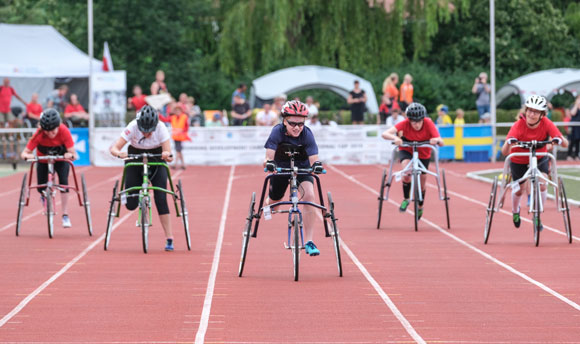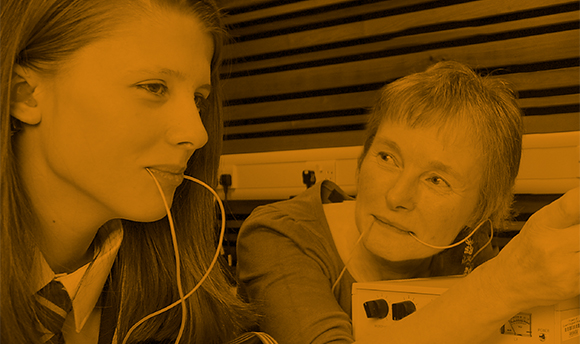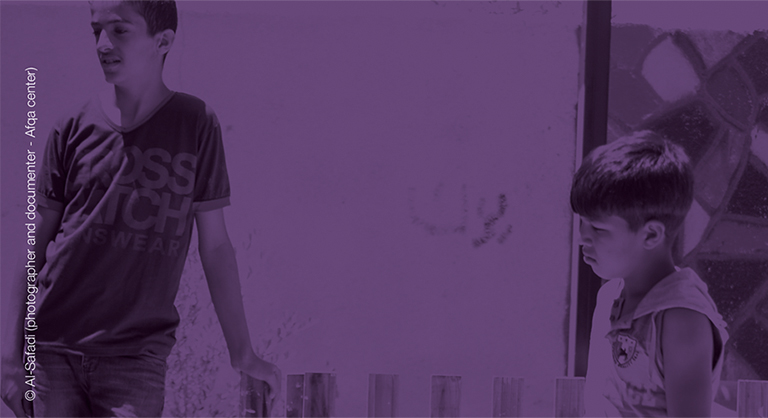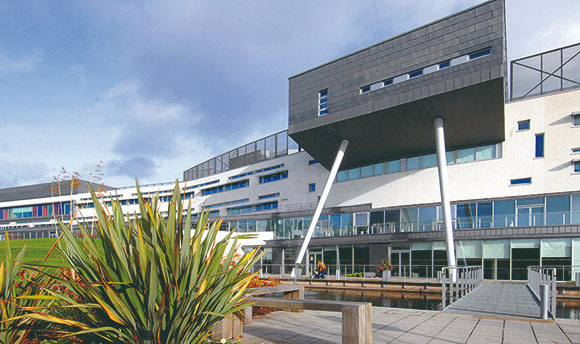Annual report on compliance to Court 2023
Approved by Senate on 13 December 2023. Approved by University Court on 21 February 2024
|
Name of Institution |
Queen Margaret University, Edinburgh |
|
Reporting period |
November 2022-November 2023 |
|
Date approved by governing body |
Approved by the meeting of University Senate on 13 December 2023 Approved by the meeting of University Court on 21 February 2024 |
|
Date published online |
18 December 2023 |
|
Web address of annual report |
|
|
Web address of institutional Researcher Development Concordat webpage |
|
|
Contact for questions/concerns on researcher career development |
Name: Kim Stuart, Director of Research and Innovation, Research and Knowledge Exchange Development Unit (RKEDU) |
|
Date statement sent to Researcher Development Concordat secretariat via CDRsecretariat@universitiesuk.ac.uk |
|
Annual Report for the Concordat to Support the Career Development of Researchers
|
Statement on how the organisation creates, maintains and embeds a research culture that upholds a positive and inclusive environment for researchers at all stages of their careers
QMU is dedicated to building a positive and healthy research culture based on diversity, inclusivity and mutual respect across all activities to help us to attract and retain our talented staff and students. Equality of opportunity is essential to achieving research excellence and we believe our diversity of thought and culture is fundamental to our ability to solve complex challenges. We aim to remove barriers, eliminate discrimination and make sure all researchers have the opportunity to reach their full potential. We offer opportunities for researcher development training and mentoring; funded initiatives; interdisciplinary events; support for external collaboration; enterprise and innovation services; grant writing support; and career and professional resources to enhance employability, with opportunities to meet others and become part of our vibrant research community. QMU Research and KE Centres are key to implementing our Research and KE Strategy 2022-27 and act as the strategic drivers for excellence in Research and KE, including the Research Excellence Framework (REF) 2028. They work at the intersection of conventional disciplinary groupings to create innovative approaches to contemporary societal challenges and public discourse and underpin our strategic commitment to an open, positive and healthy research and KE culture. Following a major strategic review in 2023 we re-launched a new framework and KPIs for the creation, governance and membership of Centres. Our Research and KE Strategy 2022-27 is focused on the strategic priorities of People, Culture and Impact and is underpinned by our commitments to the national Concordats for Researcher Development, KE, Research Integrity, Public Engagement and Open Research Data. These commitments are reflected in our publicly facing Concordat Action Plans for the Concordat for Researcher Development and the KE Concordat. QMU has championed and been involved in the UK Culture, Employment and Development in Academic Research Survey (CEDARS) since its pilot year in 2020. This has helped us gather anonymous data about working conditions, career aspirations and career development opportunities for research staff and research leaders. For 2024 a new QMU Research Culture Working Group (RCWG), chaired by a member of our Professoriate, has been proposed to subsume responsibility for the Concordats for Researcher Development and Research Integrity. This work will be overseen by a new institutional Research Governance Steering Group, chaired by the Deputy Principal. From September 2023 a member of our academic staff commenced a 12-month secondment as a Research and KE Special Projects Fellow to work with our Research and KE Development Unit (RKEDU) to progress this work. |
|
|
Provide a short summary of the institution’s strategic objectives and implementation plans for delivering each of the three pillars of the Concordat (environment and culture, employment, and professional development of researchers) for your key stakeholder groups together with your measures for evaluating progress and success. |
|
|
The University’s Concordat for Researcher Action Plan 2022-25 sets out our strategic objectives for delivery of the three Concordat Pillars and measures for success evaluation. Environment and culture.
Employment
Professional Development of Researchers
|
|
|
Summary of actions taken, and evaluation of progress made, in the current reporting period to implement your plan to support the three pillars in respect of each of your key stakeholder groups [Institution; Academic Managers of Researchers |
|
|
Environment and Culture |
A strategic review of our Research and KE Centres took place in 2023 with new leadership, governance and reporting structures established to ensure that institutional Concordat commitments are fully embedded and monitored at a local level. Quarterly meetings of all Research and KE Centre Directors now form part of our annual Research and KE Calendar – this provides an additional mechanism to review collective developments and share good practice. School Research and KE Co-Ordinator’s provide additional leadership and support for cross School initiatives.
In May 2023 we commissioned Vitae to undertake an independent CEDARS 2023 external benchmarking report against UK aggregate data. Using a QMU adapted CEDARS standard question format has allowed for UK benchmarking with other institutions and longitudinal comparison. It has also provided valuable data for measuring progress in the implementation of QMU’s Action Plan for the Concordat to Support the Career Development of Researchers and a tool for us to measure progress in addressing excellence in our research environment and culture over the REF 2028 census period.
QMU, University of Strathclyde and the Royal Conservatoire of Scotland have championed and piloted the KE Concordat in Scotland. This work has led to increased awareness and support for the alignment and measurement of Research and KE Culture and the conditions that lead to excellence in both mission activities. We are currently working with the Scottish Funding Council (SFC) to ensure that the new model for KE and Innovation Funding (KEIF) is informed by the KE Concordat principles. In July 2023, QMU was selected as a case study in best practice by Universities UK for the KE Concordat.
Work on new QMU Research Misconduct and Safeguarding in Research and Innovation guidelines has commenced with Sub-Working Groups, chaired by a member of the Professoriate identified to take this forward. The first draft of the new Research Misconduct guidelines, aligned with broader sector requirements and directives, is scheduled for February 2024. Work on new QMU Research and Innovation specific safeguarding guidelines has also been initiated. This will build on and complement existing institutional policy on safeguarding with a first draft scheduled for early Spring 2024.
A further welcomed development has been the launch of CRS Connection Sessions in May 2023. Recognising that, due to the nature of their role, colleagues may have limited opportunities to connect with other researchers, a series of new informal connection events are planned for every 6-8 weeks to facilitate such opportunity. We have also piloted group coaching sessions with Dr Elizabeth Adams who set up the Lab for Research Culture at the University of Glasgow as part of an enhanced package of support.
CEDARS 2023 data as a measure of evaluation (against CEDARS 2021 data and UK Aggregate Data) Institution In 2023, a smaller proportion of respondents felt that the institution promotes the importance of good staff mental health and wellbeing in 2023 (56%) than in 2021 (70%) although the 2023 figures do reflect the UK-wide picture. Similarly, respondents were less positive on feeling that their working environment supports such health and wellbeing, with 58% feeling that it does not (compared to 49% in 2021). Similar to the results for 2021, 70% of QMU respondents believed that the institution is committed to equality and diversity (E&D). These are close to UK aggregate results. As in 2021, 60% of respondents thought staff at QMU are treated fairly, irrespective of any protected characteristics, close to the figure nationally. However, in 2023 22% of QMU respondents said that they personally had felt discriminated against at work. Only 14% had reported an incident they had suffered or observed which, although still very low, is an increase on the 7% who said they reported an incident in the 2021 results (levels of discrimination were also at 22% at QMU in 2021) and is slightly higher than the UK figure of 9%. Similarly, the proportion of respondents who said they had personally felt bullied or harassed within the last two years was again slightly higher at 25% than in the UK aggregate (21%). Additionally, analysis suggested that a quarter of those not stating their gender (or as ‘other’) and a third of women had felt personally bullied or harassed. Only around 59% respondents indicated that they would feel comfortable reporting an incident of discrimination compared to 63% UK-wide, and 51% would feel comfortable reporting an incident of bullying or harassment. Similar proportions felt the institution would investigate fairly or take appropriate action. There was also some evidence that these results were varied by gender, with somewhat more women who would not be comfortable reporting an incident of bullying or harassment (c.40%) than men, and men slightly more likely to agree that the institutional response to reports would be fair (although the sample of men is very small). Academic Managers of Researchers 59% of respondents felt that their manager communicates clear expectations regarding behaviours and/or culture in their working environment, compared with 71% UK wide. Researchers In previous years, perceptions of job satisfaction have been raised by QMU respondents as of some concern, with just over 60% of QMU respondents reporting good levels of job satisfaction in 2021. Analysis of the 2023 results suggests a somewhat improved picture, with 80% agreeing that they had a good level of job satisfaction, compared to 68% nationally. 64% said they felt valued at work, again an improvement on 2021 figures and close to the UK benchmark. Staff sense of inclusion was also similar to the UK aggregate, with 73% reporting that they felt included in their research group or environment (71% UK). QMU staff were more likely than the UK average to feel that they were encouraged to take positive action to maintain their mental health and wellbeing, with 66% agreeing with this compared to 53% of the UK aggregate. Perceptions of whether respondents were appropriately recognised for their overall contribution to the university were ambivalent, with 53% feeling that they were, however the levels of those agreeing strongly (17%) and disagreeing strongly (7%) was better than the UK aggregate (10% and 16%). |
|
Employment
|
The launch of a new QMU HR Induction Intranet page includes researcher specific induction guide, and researcher support guide. Following feedback from CRS further information will be added in due course.
Health, Safety and Wellbeing (HSW) colleagues recently facilitated the launch of the new Employee Assistance Helpline and a QMU Wellbeing Resources page on the intranet. A new QMU Return from Leave Induction Plan has also been launched. Work relating to revisions to Reward, Recognition and Promotions criteria commenced in October 2023. Staff Performance, Enhancement and Review (PER) objectives have been updated to include a new Research and KE Category. A growing programme of Researcher Development activities continue to be promoted to all staff on academic contracts (10 days pro-rata) with a new programme of Coaching Conversations launched in November 2023.
CEDARS 2023 data as a measure of evaluation (against CEDARS 2021 data and UK Aggregate Data) Institution As in 2021, a high proportion (53.3%) of those conducting research have a low proportion of their time (25% or less) contractually allocated to research (UK aggregate 16.6%). Lower proportions than in 2021 (28.7%) have between 61-80% (none in 2023) and between 81-100% time contractually allocated to research (17.8%), with the UK aggregate being 30.5%. Greater proportions (28.9%) have more balanced contracts (between 21-60% time contractually allocated to research) than in 2021 (12.1%) (UK aggregate 44.7%). While the proportion of respondents employed on a fixed-term contract is lower (15%) than the UK average (23.9%), a higher-than-average (70% compared with 24.3% UK aggregate) proportion of these people have a very short contract (i.e., of 12 months duration or shorter). This represents an increase from 2021 (42.2%). 89% QMU CEDARS respondents reported feeling that recruitment, selection and appointment processes were fair and merit-based and 78% agreed that they were transparent and inclusive. These results are above the UK aggregate and seem to reflect positively that QMU processes continue to align with Concordat (and European Commission) recommendations for Open, Transparent and Merit-based recruitment (OTM). In 2021 89% of QMU respondents reported having an appraisal within the last 2 years. This figure has dropped slightly to 78% of QMU respondents in 2023. 73% of those who had had an appraisal reported that it had been useful compared to 64% in 2021 and 55% in the UK aggregate. In 2021 about half of QMU believed promotion pathways and processes were clear. The 2023 QMU results suggest a slightly better picture, with 58% agreeing that they were clear, and 37% disagreeing, but nevertheless indicating an ambivalence in relation to promotion processes. As in 2021, women especially felt they were not clear, with 42% of women who answered the question disagreeing compared to 13% of men. CEDARS results also show ambivalence from respondents on whether they felt that there are fair and inclusive opportunities for career advancement at QMU, with 49% agreeing that there were and 37% disagreeing. This is slightly better than the UK aggregate and does represent a ‘better’ picture overall than the 2021 QMU results, although, again, women were less likely to agree that career advancement opportunities were fair and inclusive. As in 2021, a relatively high proportion of QMU respondents felt they were treated fairly in relation to opportunities to participate in institutional decision-making, on committees etc. (69%, compared with 57% nationally), although the number that disagrees has increased to 20% compared to 7% in 2021. 53% of respondents at QMU felt that they were appropriately recognised for their contributions to their institution; slightly above the national figure of 49%. Academic Managers of Researchers In 2023 QMU CEDARS respondents broadly agreed that e.g., their manager clearly articulates their expectations with respect to their role and performance (77%), sets expectations and objectives appropriate to their role (73%), and supports them in their broader career aspirations (60%). All those who disagreed strongly with the statements about experiences of being managed at QMU were women, with just under 1 in 3 women saying that they disagreed strongly that they felt their immediate manager supported them to develop their research identity and 23% of women disagreeing strongly that their manager supports them in their broader career aspirations, compared to no men in both cases. These results reflect the UK-wide results and were consistent with QMU’s 2021 results. Only 29% of researchers’ managers reported feeling fully or mostly valued for conducting appraisals/development reviews of staff and the same number for managing staff performance. These numbers are similar to the UK aggregate on balance, with a greater proportion feeling fully valued at QMU, and fewer mostly valued. 40% of QMU respondents felt that activities related to developing researchers were mostly or fully valued (27% UK), and 44% felt mostly or fully valued for supervising research students, the same as the UK as a whole. Respondents at QMU also felt more valued for their contributions related to management and administration within the institution than the UK average (58% QMU, 34% UK). Researchers In 2023 a higher proportion of QMU respondents expect to have an academic career (76%) rather than aspiring to one (63%). These results mirror QMU’s 2021 results, where the same was observed. The proportion aspiring to an academic career at QMU is lower than both QMU’s 2021 results (74%) and the UK aggregate (75%). The proportion of respondents aspiring to and expecting to work in other occupations including within other professional roles within academia, in research careers beyond academia, and in other occupations beyond academia are similar at QMU to the UK aggregate and are slightly higher than QMU’s 2021 results. While most respondents who were not themselves managers (67%) felt that their manager encourages them to engage in personal and career development, this was lower than in 2021 when 78% agreed. Although the 2023 figure is similar to the UK aggregate of 68%, this is a long-standing requirement upon managers within the Concordat and may be worth looking into. |
|
Professional development
|
We are pleased to have increased the number of collaborative initiatives with other Higher Education Institutions and partners (The British Academy Early Career Researcher (ECR) Network, Converge, Scottish Research Integrity Network, Scottish Parliament Academic Network, Scottish Higher Education Researcher Developers, Scottish Policy Research Exchange, UK Policy Engagement Network and Universities Scotland Researcher Development and Culture Committee).
The QMU Researcher Development Training Programme has continued to grow with new leadership sessions delivered at QMU and in collaboration with the University of Stirling in 2023 – these were targeted at early and mid-career staff.
In support of our ongoing collaboration with Edinburgh Napier University we continue to exchange places on our respective training programmes resulting in even more opportunities for our researchers.
We have continued to benefit from our participation in the British Academy Early Career Research (ECR) Network Scottish Hub which is led by the University of Stirling, and co-led with the University of Glasgow. QMU researchers have continued to foster new collaborations, access additional professional development opportunities including writing retreats and the Networks writing community of practice group.
A particular focus in 2023 has been the extension of support for Researchers to acquire skills and acumen to support the Commercialisation of Research. By strengthening links with Scottish Enterprise, we have been able to access external funding and resources to support mentoring and infrastructure enhancement in this area. We have also been keen to promote awareness and participation in UKRI’s ICURe pre-accelerator programme for researchers. A new QMU Research Commercialisation Gateway policy is currently under development for launch in mid-2024. We continue to invest in our institutional membership of the East of Scotland KTP Centre, allowing researchers to access bespoke application development support and expert advice. A major achievement in 2023 has been securing EU funding in collaboration with Edinburgh Napier University from the Institute for Innovation and Technology (EIT) to create a sustainable alliance of European Higher Education Institutions (HEIs), incubators, research and business development centres, start-ups, and industry partners. The goal of this alliance, which is called Start for Future (SFF), is to create a leading European programme for entrepreneurship and innovation. So far, we are partnered with approximately 30 HEIs and business development organisations across Europe. This is a strategically important priority project for QMU, as it will help to develop a more entrepreneurial research culture and researcher innovation capabilities to support our City and Region Deal ambitions including a new on-campus Innovation Hub.
In April 2023 QMU become a member of a highly prestigious SFC Funded Alliance for Research Challenge (ARC) – the Scottish Alliance for Food, Health, Equity and Sustainability (SCAF). The Alliance is a collaborative (University of Glasgow, University of Edinburgh, University of St Andrews and others) initiative bringing together perspectives from social, natural and applied sciences, arts and humanities with the aim of addressing emerging research questions related to the future of food and help find solutions to the challenges of food sustainability and healthy ageing.
In June 2023 QMU joined the Scottish Universities Social Innovation Network being led by Glasgow Caledonian University and linked to the Social Innovation Connect initiative. The aim is to share and accelerate new ways of working in order to tackle the underlying causes of our shared social challenges, which have become increasingly prevalent in recent years. Within QMU new SharePoint and TEAMS resources to promote Researcher Development and REF 2028 resources have been developed in collaboration with CRS.
In 2023 QMU continued to participate in the Teaching, Research and Academic Mentoring Scheme (TRAMS), cross-institutional mentoring scheme led by the University of St Andrews and the University of Dundee and in partnership with Abertay University, Glasgow School of Art, the James Hutton Institute, and Trinity College Dublin (School of Medicine). In 2023-24 TRAMS is being reviewed and TRAMS Lead co-ordinators from the University of Dundee, will refresh the scheme for further development and enhancement to support and make sustainable the rapid growth of TRAMS in recent years. In 2024 we will promote the facilitation of informal external mentoring partnerships with partner institutions and alternative mentoring options such as that run via our membership of EURAXESS which aims to encourage and to facilitate transnational mobility, by fostering cooperation between European Research Area (ERA) researchers. We have welcomed the opportunity to work with the Universities Scotland REF 2028 Managers Group as part of the Joint UK Funding Bodies Consultation on People, Culture and Environment. We continue to support and build on the outcomes of the Metrics/indicators proposed in the Harnessing the Metric Tide: indicators, infrastructures & priorities for UK responsible research assessment. (figshare.com) to embed quantitative and qualitative indicators of research culture, engaging widely with our researchers, and informing our REF 2028 Strategy.
CEDARS 2023 data as a measure of evaluation (against CEDARS 2021 data and UK Aggregate Data) Institution In 2023, higher proportions of QMU respondents said they had some understanding of the Researcher Development Concordat than the UK average, with a decreasing proportion (now only 10%, down from 14% in 2021) not aware of it (well below the 38% seen nationally). The results also suggest higher than average knowledge of the Concordat to Support Research Integrity at QMU. Awareness of the Knowledge Exchange Concordat was higher than average with 76% having heard of it, compared to 45% nationally. The 2023 CEDARS introduced a question about the Narrative CV, of which around half of QMU respondents have heard of compared to 38% of the UK aggregate. Academic Managers of Researchers Only 5 out of the 6 research managers participating in CEDARS 2023 responded to questions regarding their confidence in their ability to deal with management issues. All reported feeling confident or fully confident providing effective feedback to individual staff, dealing with poor performance of staff, acknowledging good performance, managing requests for flexible working appropriately, using inclusive, equitable and transparent recruitment processes and responding to issues relating to health and wellbeing. There were also high confidence levels in relation to responding to issues relating to bullying and harassment, supporting staff in working towards their career aspirations, giving guidance to staff on institutional redeployment processes, and managing appraisal/review processes effectively, although in each of these, one respondent reported feeling not very confident. With respect to training and Continuing Professional Development (CPD) for managers, there was a strong appetite among this small sample for training on supervising doctoral researchers (60%), research integrity (60%) and mental health and wellbeing (60%). Researchers 65% of respondents claimed to maintain a formal record of their CPD, higher than the figure for 2021 (53%) and the UK average (59%). The extent of training or CPD activity undertaken by QMU’s researchers (reported by all levels of QMU staff respondent) appears to be very similar to the UK average, with a slight increase in those spending higher number of days on CPD. 31% reported undertaking 5 or more days of training/CPD in the last year, up from 20% in 2021, however, only 8 people undertook 10 or more days, as recommended in the original Concordat. In some areas, reported levels of having completed training have increased significantly compared to 2021, including in career management, collaboration and teamworking (48% 2023, 26% 2021), equality, diversity and inclusion (68% 2023, 57% 2021), and teaching or lecturing (72% 2023, 49% 2021). A higher proportion of QMU respondents reported participating in institutional policy and decision-making (28%) than the national average (14%). |
|
Comment on any lessons learned from the activities undertaken over this period and any modifications you propose to make to your action plan and measures of success as a result. |
|
|
We have very much welcomed sector guidance and developments relating to Research and KE Culture. These have informed the review and relaunch of our strategic Research and KE Centres. We are keen to use narrative CV models and guidance on the Responsible Use of Metrics to inform future KPIs and assessment and will continue to champion the principles of the KE Concordat in Scotland. Areas requiring further work include:
|
|
|
Outline your key objectives in delivering your plan in the coming reporting period |
|
|
|
|
Please provide a brief statement describing your institution’s approval process of this report prior to sign off by the governing body This report was developed using input and activities arising from the work of our Concordat for Researcher Development Working Group (CRDWG). The report is subject to approval from our Research Strategy Committee and Senate prior to submission to University Court. |
|
Signature on behalf of governing body:
Contact for queries:
This annual report will be analysed by Universities UK, secretariat for the Concordat to Support the Career Development of Researchers, to identify good practices, themes for development and information to improve national research culture policy and practice.
If you have any questions, or suggestions on how the reporting process could be improved, please contact the secretariat at CDRsecretariat@universitiesuk.ac.uk








